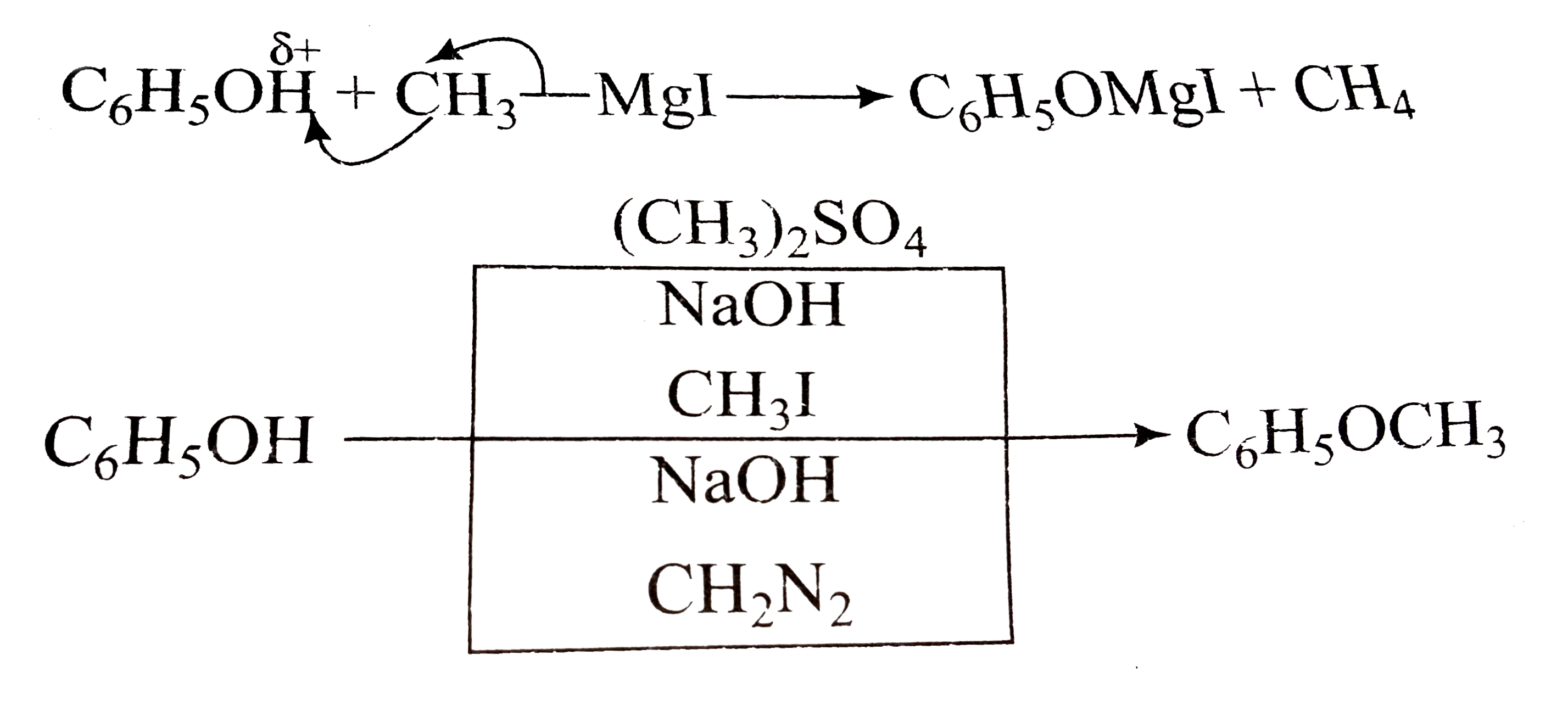Which one of the following not result in the formation of anisole?
A
C6H5OH+(CH3)2SO4NaOH−−−→
B
C6H5OH+CH3INaOH−−−→
C
C6H5OH+CH2N2→
D
C6H5OH+CH3Mgl→
Video Solution
Text Solution
The correct Answer is:D
|
Topper's Solved these Questions
- ALCOHOL, PHENOL AND ETHERSBOOK - R SHARMACHAPTER - ALCOHOL, PHENOL AND ETHERSEXERCISE - PHENOLS (IV)
10 Videos
- ALCOHOL, PHENOL AND ETHERSBOOK - R SHARMACHAPTER - ALCOHOL, PHENOL AND ETHERSEXERCISE - ETHERS level I
5 Videos
- ALCOHOL, PHENOL AND ETHERSBOOK - R SHARMACHAPTER - ALCOHOL, PHENOL AND ETHERSEXERCISE - PHENOLS (II)
34 Videos
- AMINESBOOK - R SHARMACHAPTER - AMINESEXERCISE - Archives
36 Videos
Similar Questions
Knowledge Check
Which of the following cannot result in the formation of NO ?
AN2+O2 (Electric arc)BNH3+O2,(Pt/Rhcatalyst/1200K)CNaNO3/HClDNone of theseWhich one of the following will result in the formation of an ether?
A(CH3)3C−O+NaCH3CH2Br→B(CH3)4CBr+C2H5−O+Na→CC6H5ONa+CH3Br→DC6H5Br+CH3O+Na→Which one of the following processes results in the formation of a clone of bacteria?
AConjugationBBinary fissionCTransductionDTransformation
Which one of the following processes results in the formation of clone of bacteria ?
View SolutionBacteria commonly reproduce vegetatively by
Or
Which one of the following processes results in the formation of clone of bacteria
View SolutionWhich of the following processes results in the formation of a new compound?
View SolutionWhich of the following would result in the formation of strongest π- bond if the molecular axis is X-axis?
View SolutionWhich of the following will result in the formation of an ether ?
View Solution

